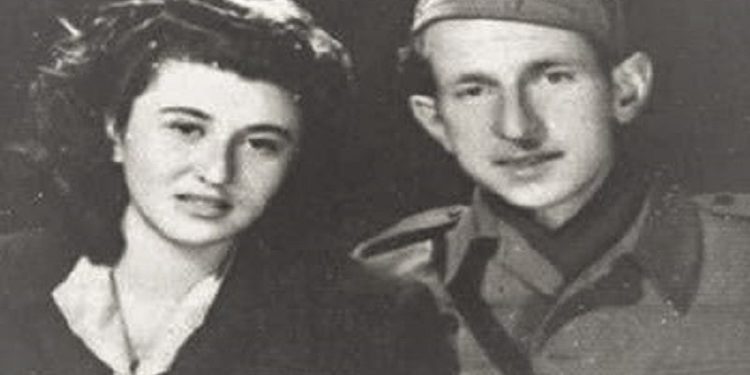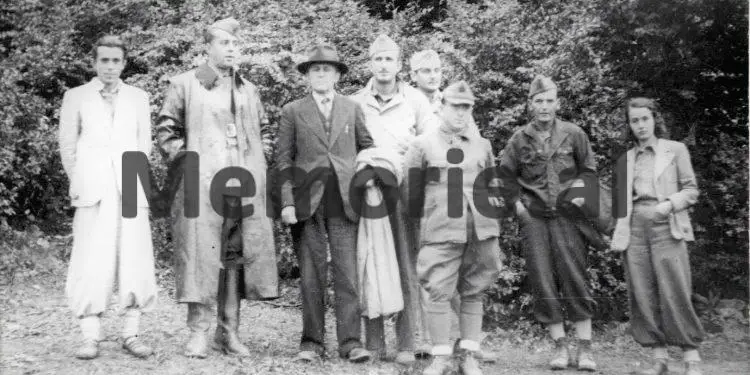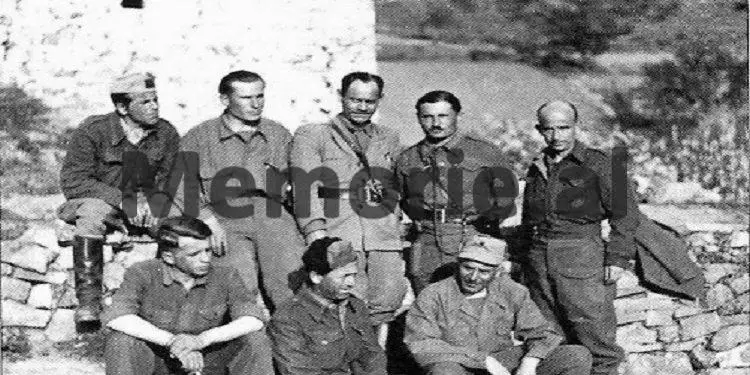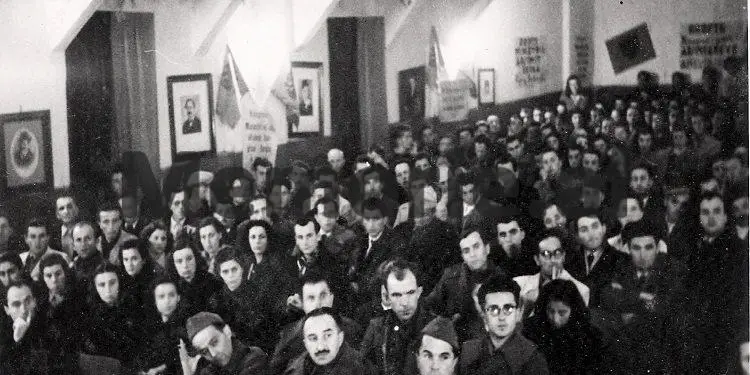By Prof. Muslim Islam
Second part
Memorie.al / I feel it is my duty as a citizen to give the reader a presentation or an explanation about the reasons that led me to add this afterword to the monograph, dedicated to the life and work of Ali Kelmendi. As I informed you in the introduction, I wrote this monograph during the 80s of the 20th century. In March of 1987, I finished the book and submitted it to the editors of the “8 November” Publishing Company. After several months, I learned that the reviews had been formulated with appreciation by three renowned specialists, and yet, I did not understand why the material was not given for editing and why the process of preparation for publication had not yet begun. I had submitted, along with the text of the monograph, photos, documents, as well as the cover. In those days, someone very kindly whispered to me that the material had been withdrawn to the Central Committee of the Labor Party of Albania. But maybe this benefactor didn’t know or didn’t have the courage, I don’t know, to tell me in which sector it was left, or which holder had it in hand. God, even today, in the years of democracy, wants to remain anonymous…!
Continues from last issue
Do the documents speak against Enver?
The documentation refutes the claims of Enver Hoxha, that he was a teacher of communist thought in Albania and the founder of the Albanian Communist Party. I do not consider it excessive to throw some thoughts, about the truth of the establishment of the NPK. In the call of the meeting in Tirana, many groups and many anti-fascist and revolutionary democrats have worked and contributed to the establishment of the PPSh, and not as it is simplified with premeditation, in the History of the PPSh and in the works of Enver Hoxha.
Sectarianism existed since the establishment of the NPK, when only 184 members were accepted into its ranks, when it is known that the Communist Movement in Albania had its beginnings from the 20s. Ten-twelve communist groups were created and operated in these 20 years, attaching to them a considerable number of detached elements.
There are numerous documents and statements of old former members of communist groups, that the sectarian spirit, strife and mistrust between groups and leaders, were introduced by certain social circles in Athens and Belgrade, using their agents and some of the members of processed groups, yes from them.
This revolutionary movement was given impetus by the dire economic situation in Albania itself. The period of the 1920s-1930s in the 20th century was filled with serious events such as the birth of fascism, which brought only the occupation of the country and, therefore, raised the sense of responsibility towards the nation in many patriots, intellectuals, young people, high school and high school students abroad.
Coincidence in history should not be denied either. The delegates for the founding meeting of the National People’s Party, for example, came from the Communist Group of Korça, Pilo Peristeri and Sotir Lubonja, but Nesti Gambeta, Stefo Grabocka, Teli Samsuri, Taqi Skëndi, and others could come. Coincidence or conjunctural intention pierced Enver Hoxha, in the founding meeting, without being elected.
He was included in the composition of the representatives of the Communist Group of Korça, the chairman Koço Tashko, starting, as he himself affirmed, from the idea that; not only artisans and orthodox represented this group. Or the truth of this action can be found in the fact that the Korça Group had been criticized for its religious and localism, but also, perhaps from the fact that in the period between 1939-41, intellectual members of the group were withdrawn, because they felt Stalinism; had reservations and disapprovals for some criminal acts and fabricated trials.
Enver Hoxha stepped into this crack, or from Koço Tashko’s commanding nature, to take advantage of this opportunity. He was helped by his spirit of achiever and conspirator. Many facts from his life and activity prove his disloyalty and tendency to create clans, to pit his friends against each other, with the sole aim of removing or eliminating the most capable, leaders and most capable fighters.
Enver Hoxha’s connections with the Yugoslavs
Logic and some data lead to the conclusion that Enver, in meetings and conversations with Milad Popovic, was pushed by Bahri Omar, who at first supported and taught Enver Hoxha, in order to have these forces and their actions you know. Miladin Popovici and Dushan Mugosha, through Enver Hoxha and his connections with Bahri Omar, not only saved their heads, but lived like gentlemen in the middle of Tirana.
Enveri used his stay in Tirana, without breaking away from Miladini, for disparaging his friends. The figure of Enver Hoxha is not a direct object of this publication, but he was not in the leadership of the Communist Group of Korça, nor in that of the branch of this group in Tirana. He did not report to the founding meeting, nor did he lead any sessions. No general secretary was elected. What name can be given to his statements, which he published as a founder, as a standard-bearer, but the name of an unscrupulous intriguer and megalomaniac?!
It is known that the attempts were made to connect with the Comintern, with the Italian Communist Party and with the Greek and Yugoslav Communist Parties, but they could not create connections from the conspiracy, because the leadership of these parties had gone deep underground due to terror fascist.
It is also known, Koço Tashko’s trip to Kosovo with other friends and the meetings he had with some of the communist organizers, as well as the information he received about Milad Popovic. The initiative of Mustafa Gjinishi was known, who, with the car of Ismail aga Petrela, took Miladin Popovic out of the concentration camp in Peq.
Exclusion of participants in the founding meeting of the Communist Party
Hasan Reçi and Selim Shpuza, who made up the former leadership trio of the Revolutionary Workers’ Movement in Albania, with Ali Kelmendi at the head, or Mustafa Gjinish, among the most active and courageous, were excluded from the founding meeting of the PKS. with Demir Godell, who kept in touch with revolutionaries abroad, or other leaders of groups, inside and outside the country, like; Sejfulla Malëshova, Ymer Dishnica, Qamil Çela, Tajar Zavalani, Koço Tashko, Mustafa Kaçaçi, Mihal Lako, Bedri Spahiu, Mafuz Laze, Hulsi Spahiu, Xhevdet Doda, Rexhep Çami, Sadik Stavaleci and others.
In the establishment of the PKS, 25 representatives
However, more than 25 representatives have participated and not 15, as has been said until now. Enver Hoxha and Miladin Popovici have used Ali Kelmendi’s name and authority for their own purposes.
Miladini, the old guard, the closest collaborators of Ali Kelmendi, shunned them, devalued them and, on the other hand, chose the name “Ali” as a nickname, under the supposed idea of respect for Kelmendi and to be removed with this name, as close as possible to the Albanians. The report, which some of the leaders had worked on, was presented by Koço Tashko. No secretary general was elected at the meeting. The quarrel broke out on the first day, over the issue of Kosovo.
The clash for Kosovo
It is known that at the founding meeting, they invited Miladin Popovici and Dushan Mugoša, to use their experience, but also from the fact that there were misunderstandings, contradictions and even quarrels and hostile manifestations between the leaders of the groups. Yes, even in the Yugoslav Communist Party, there were clashes with Kosovo. There were two positions: the first of Josif Broz Tito, this group also included Miladin Popovici, was for the revitalization of the Anti-Fascist National-Liberation War and for establishing links with the movement in Albania.
The second wing, the more sectarian one, consisted of elements with Serbian and chauvinist tendencies, which were in the leadership of the Yugoslav Communist Party, and Dushan was included. They never wanted the revival of the Anti-Fascist National-Liberation War in Kosovo and, even more so, to connect it with the movement in Albania. They wanted Kosovo to remain only a part of Serbia, to remain without war merit, on the contrary, in reactionary and conservative positions, so that it would not enjoy the right to self-determination and national claims.
It does not require, I believe many comments, an explanation why Enver Hoxha did not allow this clash to be published in Albanian historiography, because Koço Tashko, Qemal Stafa, Anastas Lulo, Sadik Premte, Tuk Jakova, Sadik Bekteshi and others were against the Serbian point of view and insisted that The Anti-Fascist National-Liberation War spread in Kosovo. Enver Hoxha relied on the pro-Slavic group, that of Dushan, Koçi Xoxes, Kristo Themelkos, with whom Miladin Popovici joined in the end.
In the end, the founding meeting, forced by the situation created after the invasion of Albania, by the necessity to create a headquarters to lead the resistance of the people and to organize the armed uprising, influenced to put aside the views or reservations they had about the groups and individuals.
How were the members of the Provisional Central Committee of the NPK eliminated?
In the end, a Provisional Central Committee was elected with 7 members: Qemal Stafa, Koçi Xoxe, Tuk Jakova, Gjin Marku, Ramadan Çitaku, Kristo Themelko and Enver Hoxhwn. Also, it is more than true that Enver Hoxha eliminated them all. In those days, Qemal Stafa was entrusted with the direction of the Communist Anti-Fascist Youth and with an idea, that he would later also take the political direction of the Albanian Communist Party.
Koçi Xoxes and Tuk Jakova were given the post of organizational secretary. It is known that the latter did not like Miladini and Dushan and, allegedly on military duty, they isolated him for six months in Mokre, which can be described as the first internment. Ramadan Çitaku, responsible for the technical side of the party, Gjin Marku, responsible for the issue of power, Kristo Themelko, responsible for the military side and Enver Hoxha, responsible for the financial side (quotas).
They were excluded from the leadership, militants such as; Hasan Reçi, Selim Shpuza, Koço Tashko, Demir Godelli, Qamil Çela, Zef Mala, Anastas Lulo, Vasil Shanto, Sadik Premte, Bedri Spahiu, Nako Spiru and others. Dr. Ymer Dishnica, in February 1942, returned from Paris to Albania and became the head of the Party Circuit for Korça, and from April 1942, together with Nako Spiru, Liri Gega, Bedri Spahiu, they were appointed to the (provisional) Central Committee of PKS and until March 1943, Dr. Dishnica directed the political side and the work with the nationalists in K.Q. of the PKS.
These parentheses were opened, only for the reader to understand that Kelmendi has nothing to do with that later continuation, which was taking on feudal colors, which was creating sectarian traps and class war, the flow of which sowed division, sowed crime, and sowed death.
The Anti-Fascist War
In the direction of the Anti-Fascist National-Liberation War, it should not be said that King Ahmet Zogu accepted the invasion, but it can be said outright why he left his homeland. The European press, in particular the French one, wrote in capital letters about the heroic resistance of the Albanians in Durrës, where the Italian fascists were defeated several times. In addition to the heroism of Mujo Ulqinak, on that black day in April 1939, dozens and dozens of boys, from Saranda to Shkodër, gave their lives for the defense of the country.
Thousands jumped into demonstrations, hundreds more grabbed their weapons and went to the mountains, and hundreds more fled to Greece, Yugoslavia, Turkey, etc. Personalities like Mit’hat Frashëri, who had a wealth of knowledge and a prominent patriotism, sided with the USA and England and came out against Soviet Bolshevism. It is known that later these three powers created the Anti-Fascist Coalition and honored and awarded visas to those forces that participated in the Anti-Fascist War.
The tragedy is that the leaders of the Anti-Fascist and Political Movement of Albania did not learn lessons from the very creation of the coalition. Mustafa Kruja demanded that Albania be under the protectorate of Italy, because they classified the danger of Serbian and Greek intentions as destructive for the nation.
Fascist Italy invaded Albania, created the administration and recognized the Albanian state. She only got the Ministry of Foreign Affairs. It propagated that the Albanian state, supported by Italy, would receive its national territories, held unjustly by Yugoslavia and Greece. These forms were soap on the tongue, ashes in the eyes, that the other Albanian territories, he looked at and had planned in his strategy, to enter deep into the Balkans under this pretext.
Mit’hat Frashëri and his side wanted such a state, but they thought that if Italy lost the war, the fate of Albania would be endangered. Here, and only here, is the basis of that doubt, that laziness, that expression “wait for us to wait”, “the time has not come”. This was the spirit of Mit´hat Frashër!
The National Front, after it was founded at the end of 1942, organized the same structures as the units, squads and other National Liberation Anti-Fascist formations and announced and participated in the liberation war. It was later withdrawn; did not fight under the idea that the National Liberation Front was a mask of the PKS. Legality also had an impact, but it remained a faction, that of Abaz Kupi that did not increase its ranks, did not expand, but was limited to some areas, with the idea that it was waiting for the right moment to act.
The NPK was published as the National Liberation Anti-Fascist Movement and was followed by young men and women, democratic anti-fascists and patriots, all over the country. I did not linger without a purpose in the Anti-Fascist National-Liberation War, because Ali Kelmendi is one of the first to raise his voice against fascism and this is reflected in his reports and correspondence with a realistic note and with a depth of analysis, with warning and the danger for Albania in those years.
He unmasked the connections of Ahmet Zog and his cabinet with the fascist circles of Rome. Kelmendi has the credit, more than anyone, for the Albanian volunteers going to the Spanish War. For himself, he wrote to the Comintern: “I belong in the trenches of Spain.” He is the founder of the newspaper “Sazani” in Lyon, France, the organizer of the anti-fascist association with students and economic and political immigrants in Paris.
He is the first Albanian revolutionary democrat, who made for himself the idea of creating the Popular Anti-Fascist Front, announced by the Comintern and who sent these directives through Dr. Ymer Dishnica in Albania. From all his reports, writings and correspondences, it follows that; Kelmendi was for a democratic Albania.
I still have to open a parenthesis for the reader, and even more so for those who are not in the field of history and who are not given the opportunity to get to know the archival documents directly, and I call it abuse, that some traitors to the nation or renegades of democratic thought- revolutionaries, such as Mustafa Kruja, Niko Xoxe, etc., if they have been condemned by the PKS, they are treated by some so-called researchers, as if they have great value for the Anti-Fascist Movement, or for the revolutionary one, and from some leaflets, they are considered patriotic big ones.
These negative phenomena disorient people, distort the historical truth, and the honest patriot is unable to think and believe. But this does not mean that the figures are seen only in black and white. They are judged in time and when their lives have moments and positive national or democratic actions. There is no reason not to point out and mention personalities, such as: Mustafa Kruja, who participated and signed in the Assembly of Vlora, on November 28, 1912.
He was a prominent researcher in the field of the Albanian language, author of hundreds of articles in the magazines of the time, a democrat and prefect of Shkodra in the government of Fan S. Noli in 1924. So, historical figures are treated in their larushia, with the rise of downs, with positive and negative sides. And an attitude that has been positive can, for a later stage, be harmful to society or even to the nation itself. Just as Zai Fundo is not denied, the wide culture, foreign languages and polemical force of his pen.
It is more than true that Zai Fundo was shocked by the economic and political situation in the Soviet Union. He did not deal with the trials and crimes of Joseph V. Stalin. He left the Soviet Union and began to leave communism as well, but his nature could not close in on itself, or occupy a corner, stay away from political developments. With which embassies was he not connected and in which forces and groups was he not found…?! As cannot be underestimated, the practical spirit, dictating force and ambition of Niko Xoxi. Memorie.al
The next issue follows















